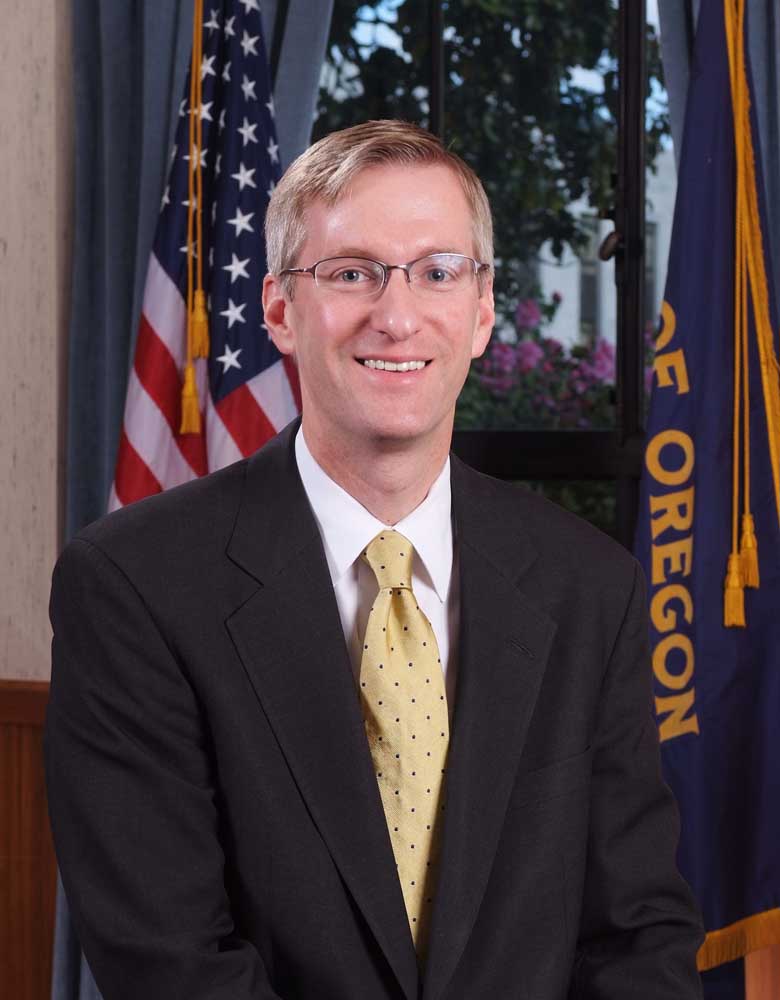Wheeler says energy loan program needs bailout
Published 7:00 am Thursday, January 7, 2016

- Treasurer Ted Wheeler
SALEM — State Treasurer Ted Wheeler sent a letter to Gov. Kate Brown Thursday morning calling on the governor to stop the state Department of Energy from issuing any new small scale loans because the loan fund has a $20 million deficit and will require a taxpayer bailout.
The program was supposed to be self-sustaining, but loan defaults and delinquent payments have left it without enough money to cover its costs.
The bailout will likely begin in 2019 and could cost taxpayers at least $15.3 million, according the Oregon State Treasury. The cost could increase if more loans go into default.
“As a result, to cover loan payments, money will be allocated away from vital public services such as education, public safety and human services programs,” the Oregon State Treasury wrote in a press release.
Chris Pair, Brown’s press secretary, said Thursday that the Governor’s Office was examining the loan program as part of a broader review of the Department of Energy.
“Gov. Brown has concluded that lingering residual issues have interfered with the Department of Energy’s ability to focus on Oregon’s future energy-related needs,” Pair wrote in an email. “The agency review currently being conducted by the Governor’s Office is assessing the Small Scale Energy Loan Program and, along with the Legislature’s recently-formed joint committee, will ensure that these issues are addressed responsibly and carefully. As Gov. Brown has said before, while we want to move expeditiously, we must ensure that we do it right.”
Wheeler asked Brown to suspend the loan program so the state can review it and issue recommendations to the Legislature on how to proceed.
The state created the small scale energy loan program in 1981 to provide low-interest loans to governments and businesses. The program’s problems are not new and despite its name, the loans were not what many people would consider small.
Wheeler pointed to the default several years ago of an $18 million loan to an ethanol plant in Clatskanie, which went bankrupt, as an example of why the program now requires a bailout. Other large loans have since gone into default and been written off as non-collectible, “which has further deteriorated (the program’s) balance sheet and reserve balances,” Wheeler wrote in the letter to Brown.
The State Debt Policy Advisory Commission, which includes members of the state House and Senate, repeatedly raised concerns about the loan defaults, including last year, when the commission warned in a report that payments by loan recipients might not cover debt. Wheeler said in his letter to Brown that he asked former Gov. John Kitzhaber three years ago for money to offset losses from defaults in the program.
“In 2012, after a review of projected loan payments versus debt service requirements, I recommended to Gov. Kitzhaber that the program’s depleted loan-loss reserve be replenished to safeguard the State against future potential defaults,” Wheeler wrote. “Instead, the program continued without augmented reserves.”
Wheeler, who is an ex-officio member of the commission, will formally present recommendations on the energy loan program at the commission’s scheduled Jan. 19 meeting.
The Treasurer’s Office sent the letter to the governor a week before the first scheduled meeting of a new legislative committee which will consider whether to overhaul or eliminate the Department of Energy, following years of news reports about problems at the agency. The governor also announced in December that she planned to pursue a review of the agency.
The state Department of Justice has an ongoing criminal investigation into the energy agency’s handling of tax credits. In September, a top administrator at the Department of Energy who was brought in to run the loan program and other renewable energy and efficiency incentives resigned.
Wheeler wrote that the Department of Energy has committed to “tightened loan underwriting standards and pursued delinquent borrowers,” but those actions would not affect the need for a bailout of existing bad loans.
The Capital Bureau is a collaboration between EO Media Group and Pamplin Media Group. Hillary Borrud can be reached at 503-364-4431 or hborrud@eomediagroup.com.





